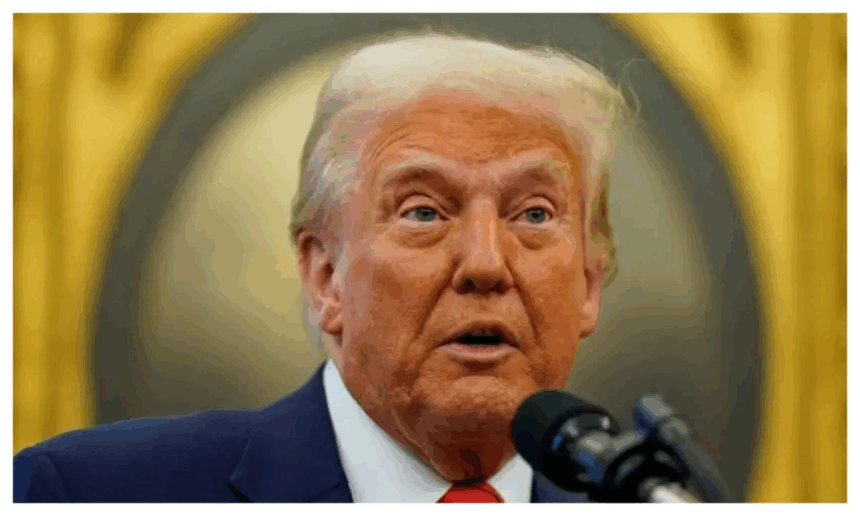• Trump advised all U.S. visa applicants, including expatriates who are overweight, to “trim down” before submitting their applications or risk being denied entry.
• Slightly overweight applicants exempt, Trump clarifies
• Move linked to new ‘fat shot’ deal with drug firms
U.S. President Donald Trump has announced plans to deny visas to Nigerians and other foreign nationals considered “grossly overweight”, claiming such individuals could overburden the country’s healthcare system.
In a statement posted on his Truth Social account on Tuesday, Trump said his administration would not approve visas for people whose health conditions posed “a significant risk of long-term public expense.”
ATTENTION: Click “HERE” to join our WhatsApp group and receive News updates directly on your WhatsApp!
“We will not ban all fat people from entering our Great Country, only those whose poor health will overburden our health care system,” Trump wrote.
“The bigger ones will need to trim down to get approved.”
The directive, reportedly issued through the U.S. State Department to embassies and consulates worldwide, instructs consular officers to consider an applicant’s health and weight-related conditions when reviewing visa applications.
READ ALSO: Trump Will Humiliate You, Don’t Bow to Him — Fani-Kayode Warns Tinubu
According to The New Republic, the cable cited illnesses such as cardiovascular diseases, diabetes, cancers, and metabolic disorders as possible grounds for denial if applicants are unable to prove financial capacity for lifelong medical care in the U.S.
Trump also hinted at plans to extend the restriction to expatriates, declaring that “no grossly overweight person will be welcome, regardless of status.”
The announcement coincides with Trump’s new “fat shot” deal with two pharmaceutical giants to make weight-loss drugs Ozempic and Zepbound more affordable, a move analysts say aligns with his campaign narrative on healthcare costs and immigration control.
If implemented, the policy could face backlash from human rights groups and medical associations, who have long criticised health-based visa restrictions as discriminatory and contrary to international norms.

